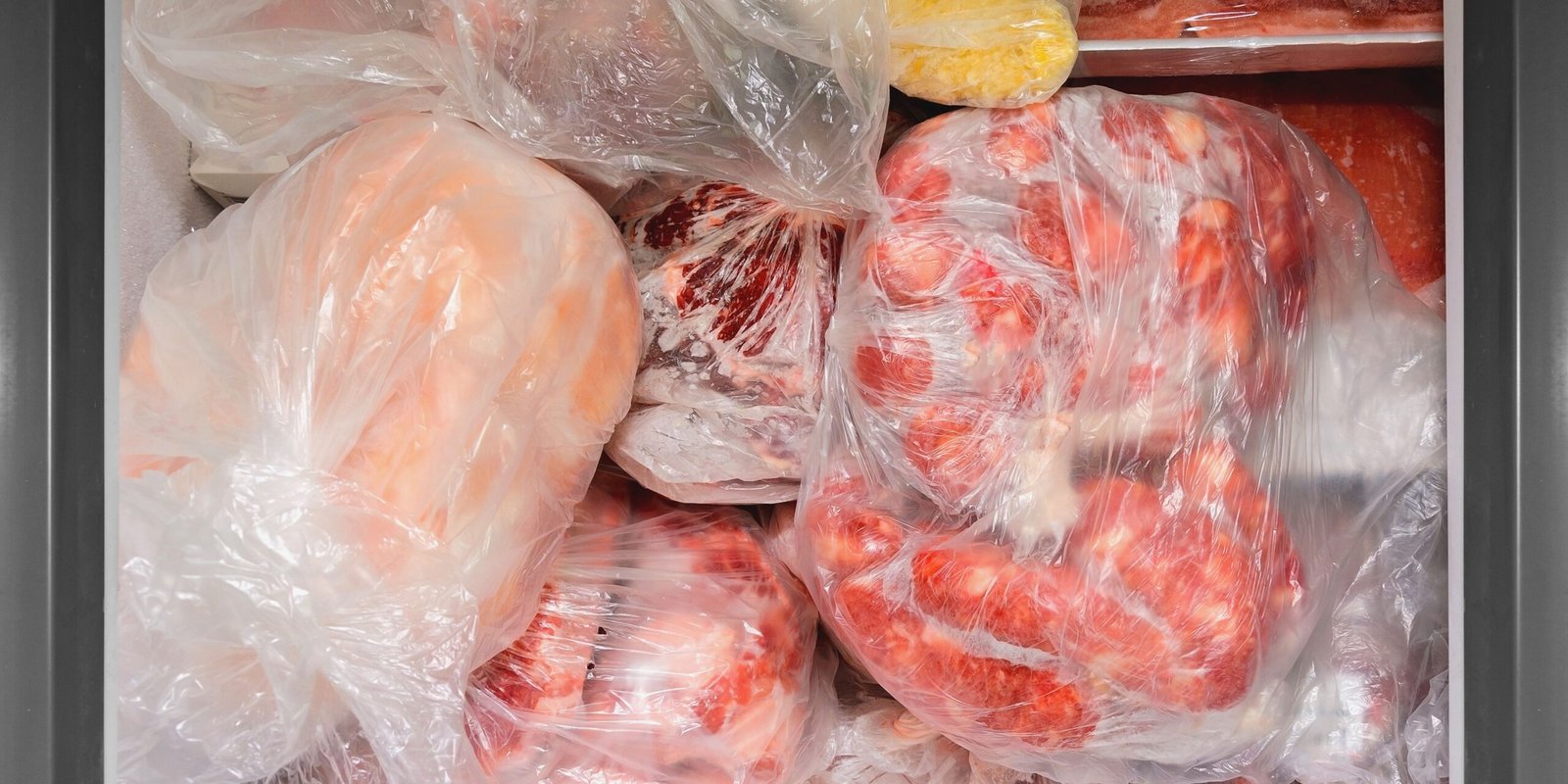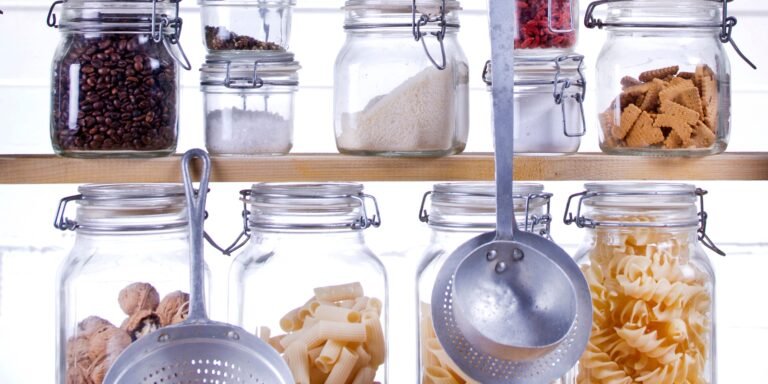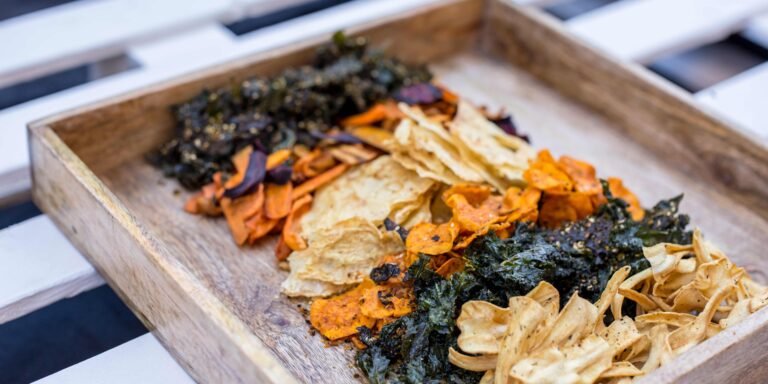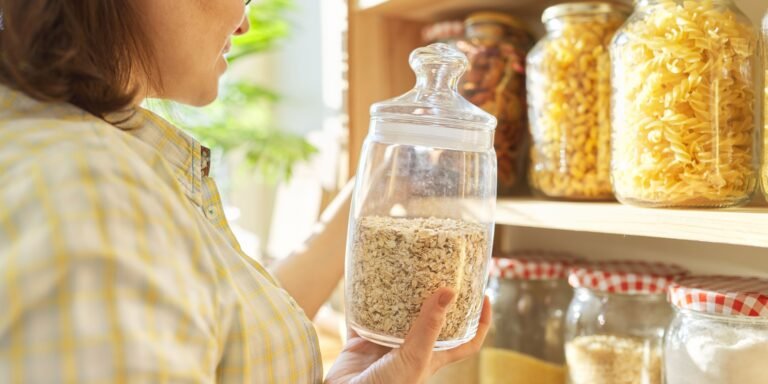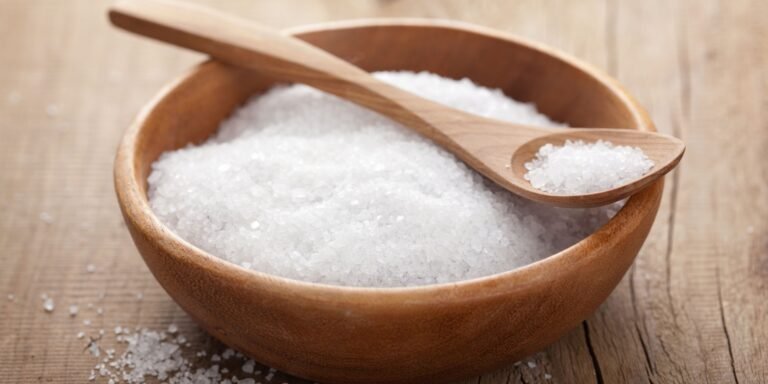Guide To Foods You Can Freeze
This post may contain affiliate links, full disclosure here.
Did you know that the United States wastes about $160 billion in food each year, with consumers throwing away 40% of it? This not only costs the average American home $2,000 in wasted money each year, but it also has a significant environmental impact. Fortunately, we can show you how to waste less, save more, and enjoy your food all at the same time!
Making the most of a typically underutilized resource in your kitchen — your freezer – is one of the secrets to decreasing food waste. While freezers are frequently overlooked, they are an excellent method to not only use all of the food you buy but also to ensure that you are never without a wonderful, home-cooked meal.
A full freezer will come in handy if you want to be well-prepared for an emergency circumstance or simply want food on hand in case you forget to go grocery shopping.
Canned and freeze-dried meals are OK for an emergency food supply, but they may not taste as delicious as fresh foods, and you will be limited in terms of variety.
However, freezing food for an emergency allows you to stockpile things that you wouldn’t be able to keep on hand otherwise. However, not all foods freeze well, so you must select wisely. Today, we’re going to discuss 18 foods that you may freeze in case of an emergency.
See also: Top 20 Barter Items to Stockpile
Foods You Can Freeze
Meat
First and foremost, there are the meats. Meat is an essential part of a healthy diet because it is high in protein and minerals. There are a few things to bear in mind if you’re intending on freezing meat.
Meat should be frozen as soon as possible after purchasing.
Make sure the meat you purchase has a long-term expiration date. Simply said, when you freeze it, you don’t want it to be on the point of being rotten.
Meat should be frozen in airtight bags with as little moisture and air as possible on the inside.
Meat should always be frozen in meal-sized portions. You only want to thaw as much meat as you can eat right away as you thaw it out.
Breast of chicken
Chicken is delicious, low in fat and cholesterol, and packed with protein. Individual chicken breasts should be wrapped in sealed bags and frozen as soon as possible after purchase. Frozen chicken can be stored for up to 14 months in the freezer.
Burgers
Burgers are delicious, convenient, and allow you to put that fire to good use. Form your burger patties, wrap them in cling foil, and freeze as many as you’ll need for a single meal in an airtight bag. The burgers will keep for up to 4 months in the freezer.
Fresh Lamb and Beef
Meat steaks, stewing beef, lamb chops, and other similar items can simply be frozen. Individually freeze steaks and chops, then place them in an airtight bag with as little air as possible within. In the freezer, these will last 6 to 12 months.
Pork
Pork is always a good choice for freezing because it will keep for up to a year if properly packaged in an airtight bag. Pork loin, pork chops, ribs, and all the rest of the delectable fare will suffice.
Bacon
Divide two to four slices between waxed paper and store in a freezer bag for easy serving sizes. It will thaw overnight in the fridge and be ready to cook the next morning. Place the freezer bag in cold water for a couple of hours to thaw, changing the water every 30 minutes.
Lunch meats, sausage, and bacon
Yes, there are a variety of delectable foods that can be useful in a survival situation. You’ll want to make sure these are securely wrapped because they’ll only last about two months in the freezer, maybe three at most.
Pre Made Casseroles
Do you want the convenience of freezer casseroles but need to utilize the dish right away? Freezer paper should be used to line a casserole dish. After that, add the ingredients and place them in the freezer. Remove the contents by taking them out with the paper once the whole thing has frozen solid. Then discard the paper, rewrap the food, and return it to the freezer. Unwrap the contents the day before you intend to eat it and place them in the original dish to thaw overnight in the fridge.
Vegetables
Of course, you’ll need some vegetables on hand because that’s how you’ll acquire your important vitamins. Here are some suggestions for freezing vegetables so that they last as long as possible.
Always blanch and shock your vegetables before cooking. This implies you should immerse them in boiling water for 1 to 2 minutes before immediately cooling them in ice-cold water.
Because the best way to freeze vegetables is in a vacuum-sealed bag, you may wish to invest in a vacuum sealer, though Ziploc bags will suffice.
Herbs
Don’t let your huge parsley crop go to waste. Finely chop herbs and place in ice cube trays, filling halfway with water or olive oil and freezing. Place in a freezer bag once frozen. Cubes can be removed as needed and added to stews, soups, and casseroles. The herbs will be too limp to serve as a garnish if they are frozen.
Spinach
It makes no difference whether you blanch the spinach or not in this scenario. In the freezer, fresh spinach should last up to three months.
Kale
Kale is nutritious and delicious, and you don’t even need to blanch it if you use young kale. Kale that has reached maturity, on the other hand, should be blanched (stems for 2 minutes, leaves for 1 minute). It should keep for up to 3 months, just like spinach.
Broccoli
Broccoli is also very healthful, and when blanched and stored in an airtight bag, it will last for 4 to 6 months in the freezer.
Asparagus
Although not everyone enjoys asparagus, if you do, it is another very healthy vegetable that freezes well. It won’t have the same crisp texture after blanching and freezing, but the flavour will last for up to a year.
Brussel Sprouts
Remove the outer leaves from your sprouts before blanching them (2 minutes for tiny ones, 3 minutes for large ones). Place them in a vacuum-sealed bag and place them in the freezer. These can be stored in the freezer for up to a year.
Tomato Paste
Have you used 1 tablespoon and still have the remainder of the can? Freeze it in tablespoon-sized portions on a plastic-lined baking sheet. Wrap in plastic wrap and store in a freezer bag once frozen. (Tomato paste in a can should not be frozen.)
Fruits
Next, let’s look at some fruits that are wonderful to freeze for additional vitamins and healthful carbohydrates. Here are a few pointers to get you started.
Make sure the fruit is quite fresh before freezing it, and if feasible, not nearly ripe.
Bring out your handy vacuum sealer, since you’ll need it for this.
Grapes
Have you tried a frozen grape before? They’re fantastic! They should be carefully washed and dried before being spread out on a baking sheet to freeze overnight. Put them in an airtight bag, then when you’re hungry, take a handful out and munch.
Berries
All types of berries can be frozen with ease. They have a one-year shelf life.
Apples
When freezing apples, choose a drier apple rather than one that is overly juicy, as less moisture in the bag is better. These will last 8 to 12 months in the refrigerator.
Applesauce
When you take it out of the freezer, it tastes exactly like fresh. For up to 12 months, store in an airtight container (remember to leave headspace).
Avocados
Before peeling, wash and halve the fruits. Puree with lime or lemon juice and freeze as halves. Avocados that have been frozen tend to get mushy, so they’re good for sauces and dips but not for eating by the slice.
Bananas
Frozen bananas can be kept in the freezer for up to 6 months.
Oranges
Citrus fruits are delicious, but due to their high moisture content, they will only keep in the freezer for 4 to 6 months.
Kiwi
Kiwi is an excellent fruit for freezing. Not only does it taste great, but it also keeps for up to a year in the freezer.
Mango
Mangos are also fantastic for freezing. They can be stored in the freezer for up to a year.
Grains
Including grains in your diet is also beneficial, owing to the fibre and vital minerals they provide.
Corn
Corn kernels can be frozen for up to a year and still be edible.
Citrus
You can freeze citrus zest in an airtight container and then break off a piece when you need it.
Fill ice cube trays halfway with juice and freeze. Place the cubes in a freezer bag and use as required. On a hot summer day, use the juice cubes to keep homemade lemonade cool without diluting the flavour.
Bread
This is a great alternative if you want to bake some fresh bread and freeze it, and it’s even better if you use whole grains. Bread that has been frozen can be eaten for up to four months.
Ginger
Frozen ginger is considerably easier to grate than fresh ginger, so it’s a good idea to keep some on hand. Place it in a freezer bag after wrapping it in plastic (either whole or in 1-inch chunks, if desired). Remove it from the freezer, grate the amount required, and replace it. You may also freeze ginger that has been chopped or sliced. Wrap securely in plastic wrap and store in an airtight container.
Dairy
Butter
Butter can be frozen in its original wrapper, in a freezer bag, or wrapped in foil. For flaky baked items, grate frozen butter directly into the dough, or use these methods to quickly soften butter.
Cheese
Place the grated cheese in an airtight bag (portion into 1- or 2-cup servings for convenience). To assist prevent clumping, add a tablespoon of cornstarch and shake to mix. Thaw in the refrigerator before using in casseroles, soups, quiches, or one of these incredible pizzas. Frozen block cheese has a crumbly quality that makes it unsuitable for sandwiches.
Chocolate
The temperature must be steadily reduced for chocolate to freeze effectively. Wrap securely in plastic wrap, place in an airtight container or freezer bag, and chill for up to 24 hours. After that, put it in the freezer. To defrost the chocolate, start by placing it in the refrigerator. To avoid condensation, make sure the temperature rises gently. Allow chocolate to come to room temperature before unwrapping once it has been removed from the fridge.
Cream Cheese and Sour Cream
If you want to spread it on a bagel, don’t freeze it because it will ruin the texture. However, if you’re making cheesecake, casseroles, or other baked items, that cream cheese or sour cream can absolutely be frozen. Thaw overnight in the fridge, then carefully reheat while stirring regularly to avoid it separating, crumbling, or curdling.
Eggs
Eggs should not be frozen in their shells. Eggs, on the other hand, can be frozen either gently whisked and stored in a freezer-safe container or separated and poured into ice cube trays. Avoid using thawed egg whites for things like angel food cake or meringue because they may not whip up to a foam as well as fresh eggs.
Milk
If your milk is nearing its expiration date, put it in the freezer. It’s better for cooking and baking rather than drinking because it can get gritty. Always provide room for expansion while freezing in a glass container or ice cube tray. Before usage, thaw in the refrigerator and give it a good shake.

